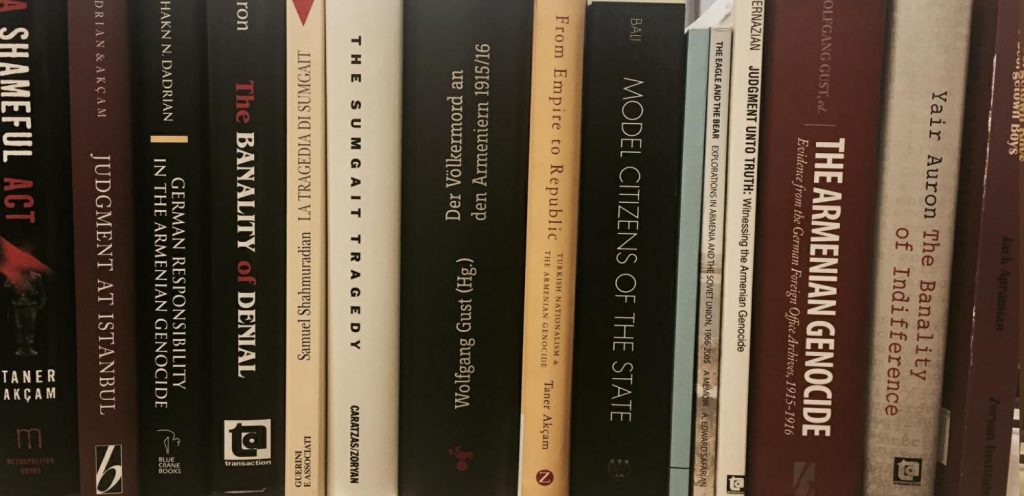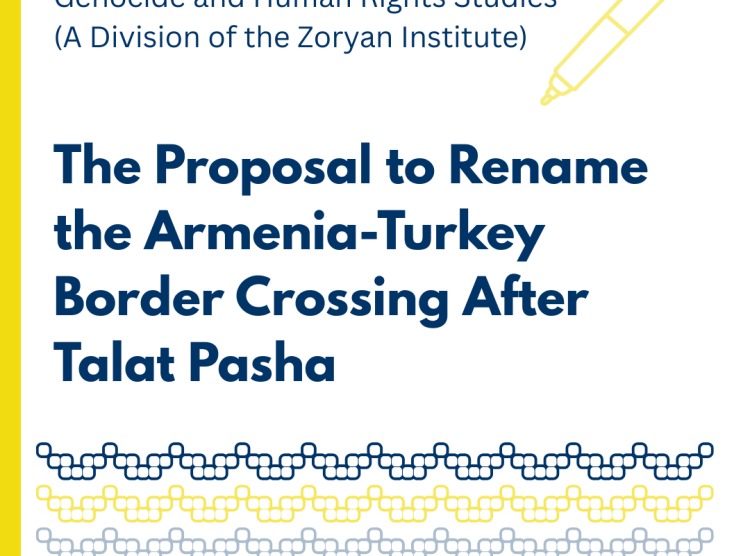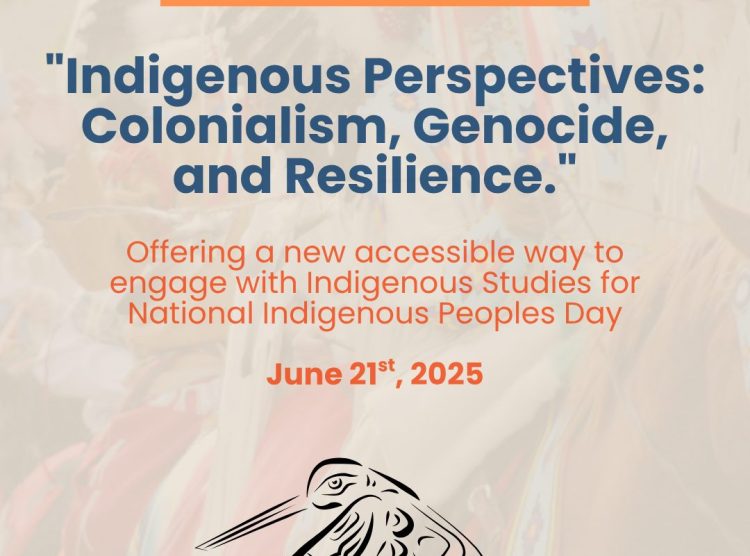Prof. Taner Akcam: We Have to Create Institutions that Carry the Legacy of Vahakn Dadrian
Article
Re: Prof Taner Akçam: We Have to Create Institutions that Carry the Legacy of Vahakn Dadrian
21 Sep 2019
Article
21 Sep 2019
Dear Editor:
As members of the Board of Directors and staff of the Zoryan Institute, we write firstly to congratulate Taner Akçam on receiving the OIA Vahakn N. Dadrian Genocide Scholarship Award and, secondly, to respond to the above-mentioned article. As Professor Akçam notes in his speech, Professor Vahakn Dadrian, the Director of Genocide Research for the Zoryan Institute since 1999, was instrumental in mentoring him on his way to becoming one of the leading scholars in Armenian Genocide Studies.
In his address, Professor Akçam underscores the necessity of an effort to “institutionalize” research on the Armenian Genocide, stating, “[T]he field of Armenian genocide [sic] research simply must be ‘institutionalized.’ Here is the bitter pill: there is not a single Armenian Genocide research center in all of North America.” As a North American institution that has been in the forefront of Armenian Genocide Studies for nearly four decades, we take exception to the statement that “there is not a single Armenian Genocide research center in all of North America.” In fact, it was upon Professor Dadrian’s introduction and recommendation that the Zoryan Institute offered its resources as an Armenian Genocide Research institute in support of Professor Akçam’s professional development from 2001 to 2006.
Here are only two examples of that support:
The publication of Akçam’sFrom Empire to Republic: Turkish Nationalism and the Armenian Genocide(London: Zed Books, 2004). In the preface to that book, he wrote the following:
“My special thanks go to the directors and staff of the Zoryan Institute. I would like to thank … its president, who provided unstintingly the facilities and resources of the institute, and has encouraged me in my research…. Vahakn Dadrian, its Director of Genocide Research, went over each page with a fine-tooth comb, making important critical analyses, despite undergoing heart surgery during the process.”
The publication of Akçam’s A Shameful Act: The Armenian Genocide and the Question of Turkish Responsibility (New York: Metropolitan Books, 2006). In the acknowledgements in that book he writes:
“This English edition would not exist were it not for the Zoryan Institute, which assisted greatly in the translation and revision.”
Prof. Dadrian made a public announcement in 1999 about joining the Zoryan Board of Directors and made the very same points as Prof. Akçam earlier this week:
“Armenian Genocide documentation is inexorably connected with the denial of that Genocide by the perpetrators. Therefore, any effort at documenting the Armenian Genocide must confront the “Turkish denial syndrome.” Now, however, that syndrome has grown into what I would call an industry of denial. We are dealing with the resources of a powerful, growing nation-state, militarily, economically, and politically overwhelming in its resources. The task is becoming more and more formidable, almost impossible to overcome, given the meager resources at our disposal. Therefore, I would like to underscore the fact that the existence of an institute, like the Zoryan Institute, is a welcome relief and deserves every conceivable support that we can imagine. I have thus recently decided to join Zoryan and do everything I can to allow Zoryan to flourish in its important task of documenting the Armenian Genocide.”
At an event celebrating Zoryan in 2005, Professor Dadrian reaffirmed his reasons for joining the institute:
“And this, I’m happy to tell you, is the reason why I am affiliated with the Zoryan Institute. Because, as far as I know, be it in Armenia or in the Diaspora, Zoryan is the only institution that is intent on exploring genocide in a scientific frame of reference. This is the reason, also, that I think the Armenian community, in the Diaspora in particular, should come to terms with this acute need of studies that have gravity, seriousness, and that can not [merely] attract but [also] engage the action of other academics. Therefore, I think Zoryan needs encouragement, but above all, concrete, tangible support. I repeat again, as someone who has spent more than half a century in the academic world, I think that we desperately need to move from the description of the events of tragedy of genocide to analytical studies of the Armenian Genocide.”
To claim that “there is not a single Armenian Genocide research center in all of North America,” while using the ideas expressed 20 years ago by Professor Dadrian, dishonours both the memory of Professor Dadrian and the institute to which he devoted himself

Since its inception 37 years ago, the Zoryan Institute has been dedicated to research on the Armenian Genocide within the context of Comparative Genocide Studies, two fields in which Prof. Dadrian was a pioneer. The Institute has published over 50 books based on original research by some of the most renowned scholars in the field. It has established and publishes two academic periodicals, including Genocide Studies International, in affiliation with a major university press. It has organized 25 international conferences in Armenia, Argentina, Brazil, Canada, France, and the United States. It has recorded over 800 oral history interviews of Armenian Genocide survivors, which have served as a unique resource to specialists from many disciplines and continue to inspire new approaches to and understanding of the crimes committed against the Armenian people. It has organized and facilitated 135 open-university seminars and a score of lectures.
For the past 18 years, the Zoryan Institute has run the Genocide and Human Rights University Program (GHRUP), whose mission is to recruit, train, and support a new generation of scholars to undertake a career in Genocide and Human Rights Studies. Today, the GHRUP boasts nearly 500 graduates from 42 countries, many of whom are currently teaching at universities in Europe, North America, and South America.
Two publications of outstanding importance must be mentioned to illustrate the significance of the Institute’s activities. One of these is Vahakn N. Dadrian and Taner Akçam’s Judgment at Istanbul: The Armenian Genocide Trials, in both Turkish and English language editions. This was the end product of a multi-year effort, achieved with the assistance of the Armenian National Institute, to document the post-WWI Ottoman Military Tribunals prosecuting crimes committed during the war, including those against the Armenians, based on Ottoman government and newspaper sources. The other is Wolfgang Gust’s The Armenian Genocide: Evidence from the German Foreign Office Archives, 1915-1916, in German, English, and Turkish language editions. These books were the product of a 12-year effort to document the Armenian Genocide through the evidence of Turkey’s military and political ally during WWI.
We have listed only a fraction of the Institute’s achievements in promoting Armenian Genocide research, education, publication, and the collecting and preservation of archival documentation. It could not have been realized without an institutionalized approach and the dedicated work of numerous scholars, specialists, board members, staff members, volunteers, and the generous support of over $24 million from the Institute’s donors, worldwide. The Zoryan Institute will continue to conduct all these activities in Armenian Genocide Studies, hence will fulfill the legacy of its Director of Genocide Research, Prof. Vahakn Dadrian.
We wish to set straight the record marred by a false claim that “there is not a single Armenian Genocide research center in all of North America” by affirming our appreciation and support of the Institute’s mission and achievements.
Dr. Rouben Adalian
Prof. Varouj Aivazian
Prof. Joyce Apsel
Prof. Stephan Astourian
Prof. Levon Chorbajian
Prof. Maureen Hiebert
Prof. Elisa Von Joeden-Forgey
Prof. Bedross Der Matossian
Prof. William Schabas
Prof. Roger W. Smith
Diran Avedian
Federico Gaitan Hairabedian
Arsinée Khanjian
Jenna Lemieux
Megan Reid
K.M. Greg Sarkissian
George N. Shirinian
Amb. Armen Yeganian
Prof. Alina Garabegian

03 Jul 2025
Open Letter On the Proposal to Rename the Armenia-Turkey Border Crossing After Talat Pasha
Read More
27 Jun 2025
The Zoryan Institute Releases Special Episode of Dispersion Podcast on Canadian Multiculturalism Day: “Friendship as Citizenship” with Dr. Rajesh Shukla
Read More
20 Jun 2025
Commemorating National Indigenous Peoples Day: ZI Releases Webinars in Indigenous Studies across the Americas on Streaming Platforms
Read More